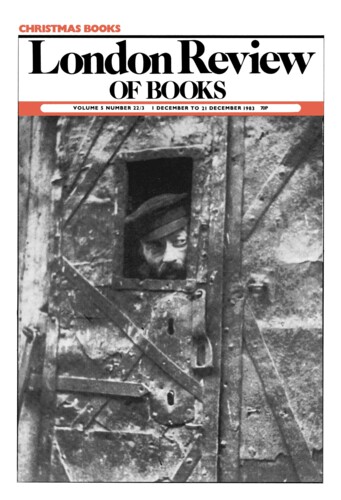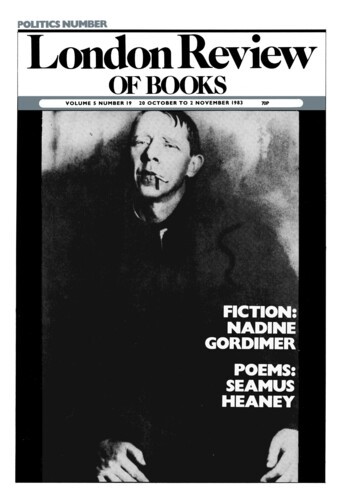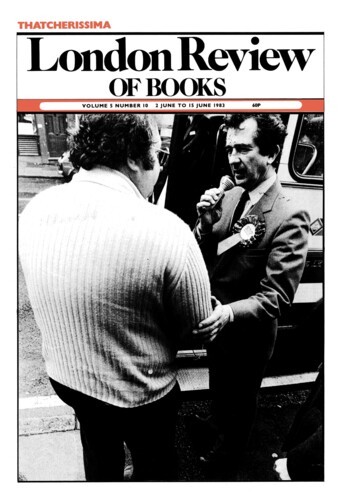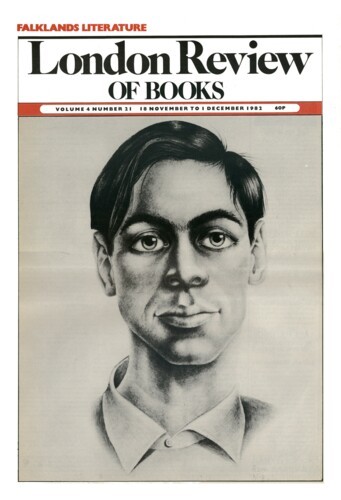Opera Mundi
Michael Neve, 1 December 1983
Opera and opera-going proliferate at very strange times. The opera revival of the last decade is a matter of considerable interest, since in some ways it seems so inappropriate, so profligate, when all the talk is about tightening belts. Opera booms when the expense of it is most ruinous, and events seem most ‘operatic’ when they are huge, scary and very much for real. Opera as a cultural form lays bare the fact that there is money to sustain it while at the same time – the same Wagnerian time, one might say – it calls into question the base that sustains it. Something was changed utterly when the children of Switzerland decided a few years ago to seek out and destroy the national opera house. Opera in Switzerland had become the symbol of an EEC style of bloatedness, of financial mismanagement on a scale that only the financing of opera could rival. After the riots in Switzerland, punks against Puccini, it really did seem that Herbert von Karajan was a Nazi; that Luciano Pavarotti was the ultimate Italian mother’s boy, bent on world domination, and that opera would be subsidised in the industrial wastelands of a Europe unable to employ vast numbers of its own citizens. History repeats itself, appearing first as tragedy, then as farce, and then as opera.–




